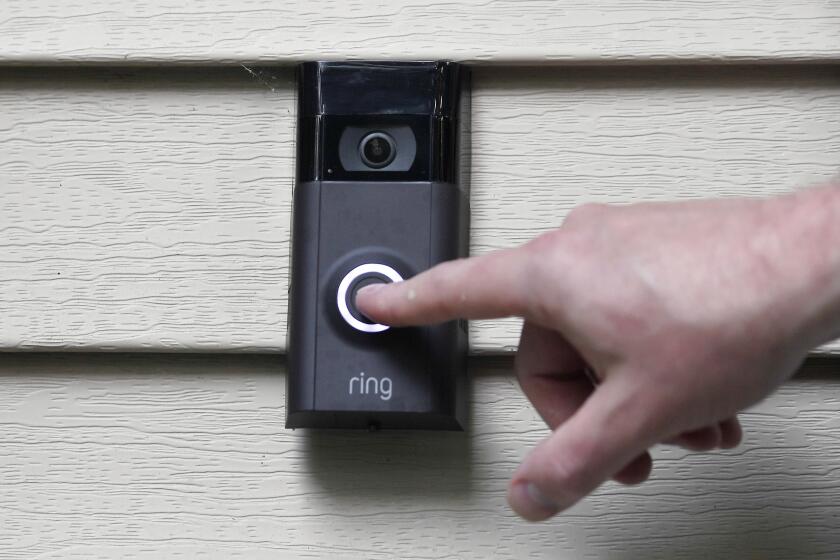Wisconsin man behind ‘swatting’ scheme using hacked doorbell cameras gets 44 months in prison

- Share via
- A Wisconsin man who hacked doorbell cameras and made bogus phone calls to police was sentenced to 44 months in prison.
- The ‘swatting’ scheme took place in California, Michigan, Montana, Georgia, Virginia, Texas, Illinois, Florida and Alabama.
A Wisconsin man who made bogus emergency phone calls designed to draw SWAT team responses in an elaborate scheme involving hacked doorbell cameras was sentenced to 44 months in federal prison Thursday.
Kya Christian Nelson, 23, of Racine, Wis., pleaded guilty in January to one count of conspiracy and two counts of unauthorized access to a protected computer to obtain information. The “swatting” incidents he organized in 2020 took place in California, Michigan, Montana, Georgia, Virginia, Texas, Illinois, Florida and Alabama.
Nelson has been in federal custody since August 2024 and was previously serving a prison sentence in Kentucky after being convicted in state court there in an unrelated case.
Two men are charged with breaking into Ring home security camera systems and making false emergency reports to police.
Nelson and co-conspirators hacked into a dozen Ring home security camera accounts, and placed bogus emergency calls to police. They then livestreamed the officers’ armed responses on social media. They also taunted responding police officers and victims through the Ring devices during several of the incidents, officials said in a news release Thursday.
The victims were strangers to Nelson and his co-conspirators, officials confirmed Thursday.
Nelson and others were able to get into the Ring accounts by illicitly obtaining usernames and passwords for Yahoo email accounts and identifying individuals who used the same credentials for their Ring home security systems. Two of the victims were in Southern California.
An 18-year-old from Lancaster has pleaded guilty to making hundreds of calls falsely threatening to conduct shootings or detonate bombs at public facilities.
One house in West Covina was targeted in November 2020, when Nelson and his co-conspirator placed a call to the city’s police department claiming to be a minor child in the home. They told police the child’s parents were drinking and shooting guns inside the home and that they had multiple firearms there. Police cleared the residents from the home at gunpoint.
Three days later, an Oxnard home was targeted, with Nelson making a call to local police, again claiming to be a child, saying his father had a handgun in the house. Nelson then made a second bogus call to police to report hearing shots fired at the victim’s residence.
Once police responded, Nelson used the Ring camera to threaten and taunt the police officers, prosecutors said.
Calls have triggered huge deployments of law enforcement and caused panic at schools, churches and other institutions. But prosecuting threats in California can be a challenge.
In a sentencing memorandum, prosecutors described what Nelson and those he worked with did as “terrorizing innocent people around the country from behind their keyboards.”
One of Nelson’s indicted co-conspirators, James Thomas Andrew McCarty, 22, of Kayenta, Ariz., pleaded guilty to one count of conspiracy and was sentenced to seven years in federal prison in June 2024. His sentencing included both his role in this case and additional charges in Arizona.
In a statement to The Times in 2022, when Nelson and McCarty were indicted, Ring said it takes “the security of our customers extremely seriously” and has taken steps to strengthen protections, including requiring customers to verify their identity when logging in and scanning the web for stolen Ring passwords.
More to Read
Sign up for Essential California
The most important California stories and recommendations in your inbox every morning.
You may occasionally receive promotional content from the Los Angeles Times.













